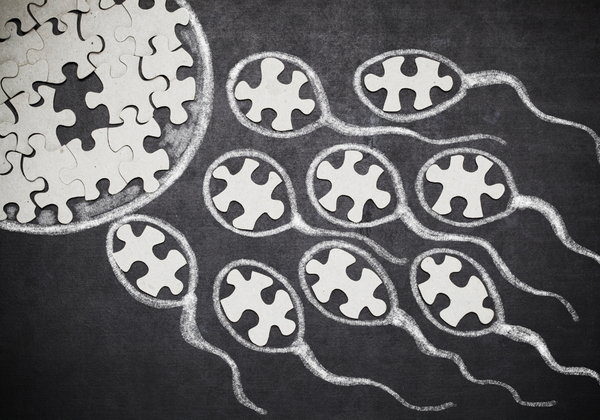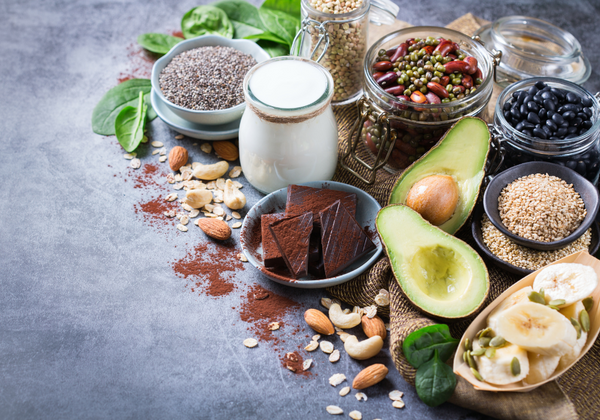
Article
Article
Posted on
Medically speaking, a regular cycle is one that varies in length by seven days month to month at most. If the cycle fluctuates more than this, it is considered irregular.
The most likely cause of irregular cycles are hormonal imbalances, however diet greatly influences your hormones which means that the right nutrition at the right time of the month can make a huge difference in making your cycles regular.
We have created the ‘Eat Yourself Pregnant Diet Plan’ which will encourage you to eat the right foods to help balance your hormones, which can, in turn, make your cycle more predictable and conception more likely.
There are 4 phases to your cycle and each phase has important nutritional requirements to maintain stability in your cycle"
It is common for women to feel a hormonal shift on the first day of their period – all the premenstrual tension calms and a sense of relief ensues. In turn you may feel lethargic. Try to enjoy some quiet time, avoid exercise and get yourself a few early nights if possible.
This time in your cycle is when you will need warm and nourishing foods, rich in iron and vitamin C as they will replenish the iron that you lose while on your period. Foods that are rich in vitamin B will give you energy.
Good sources of Vitamin C:
• Fruits and vegetables
Good sources of iron
• Lean red meat
• Pumpkin seeds
• Beans and pulses
• Dreid apricots and raisins
• Shellfish
• Dark green leafy vegetables
Good sources of B-vitamins:
• Whole grains
• Lamb, beef, poultry
• Shellfish
• Eggs and dairy
• Leafy Green vegetables
• Yeast extract
Phase 2 of your cycle may vary in length from month to month. Oestrogen will rise as your body prepares to ovulate and during this time women tend to feel great – attractive, flirty, energised and full of libido!
It is important to stock up on B-Vitamins to help balance your hormones and encourage healthy cell division (a crucial part of baby-making).
Foods that contain lecithin will help to keep your cell membranes healthy. Keep eating foods that are rich in vitamin C to the make the water in your cervical mucus more plentiful. Eat foods rich in capsaicin, isoflavones and L-arginine which all help the body make nitric acid which dilates your blood vessels, easing bloodflow through your whole system – this is great for your reproductive organs.
It is extremely important at this stage to support your immune system; it needs to be in optimum condition for a successful and healthy implantation to occur. Do this by ensuring you get enough Vitamin D through exposure to sunlight, eating sardines and salmon or shitake mushrooms or a Vitamin D supplement.
Good sources of Lecithin:
• Eggs
• Dairy
• Green leafy vegetables
• Legumes
• Seafood
Good sources of Capsaicin:
• Hot peppers
Good sources of Isoflavones:
• Soybeans and soy flour
• Tofu
• Tempeh
• Miso
Good sources of L-arginine:
• Meats
• Fish
• Seafood
• Eggs and dairy
• Nuts, seeds, wheat-germ
Phase three is called the luteal phase of your cycle. Foods that are rich in Beta-carotene are important to include in your diet during this phase. The corpus luteum (the ruptured ovarian follicle that produces progesterone to thicken the womb lining, close the cervix and maintain a pregnancy) contains a high level of Beta-carotene. It is a powerful antioxidant that protects your cells from damage.
Good sources of Beta-carotene:
• Butternut squash
• Carrots
• Collards
• Kale
• Spinach
• Sweet Potato
• Mustard Greens
If no fertilisation has occurred by phase 4 your hormone levels will fall, and you could begin to feel lethargic again. Many women crave a sweet treat, and it is important to allow yourself the odd treat as an effective diet comes down to the 80:20 rule – allow yourself some freedom to enjoy our favorite treats up to 20% of the time. To keep your hormones steady you must keep your blood sugar balance stable so don’t eat an excessive amount of refined carbohydrates, instead stick to slow-release carbohydrates.
Good sources of slow-release carbohydrates:
• Beans and pulses
• Vegetables
• Whole grains
• Berries and citrus fruits
The best way to maintain your blood sugar balance is to combine these slow-release carbohydrates with protein sources and good fats: polyunsaturated and mono-unsaturated fats.
Taking on board these recommendations will remove the uncertainty of when your ovulation occurs, it will also help to improve your mood and energy levels throughout your cycle by balancing your hormones and blood sugar levels.
Zita's book Eat Yourself Pregnant contains more guidance and tips on getting your body ready for a baby, including 80 delicious recipes that will provide you and your partner with all the key nutrients you need when trying to conceive.

Article

Article

Article